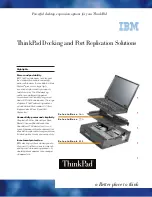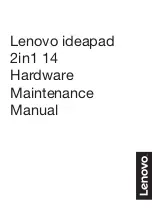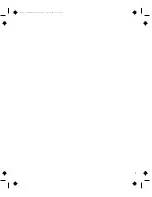
MultiBoot
Hardware and Software Guide
B–5
MultiBoot Results
Before changing the startup sequence, consider the following:
■
When the notebook restarts after the boot order has been
changed, it considers only the first of each type of device
(except for optical devices).
For example, suppose that the notebook is connected to an
optional docking device (select models only) that contains a
hard drive. This hard drive is shown in the boot order in
Computer Setup as “USB hard disk.” If this drive is placed
before the hard drive in the primary hard drive bay in the boot
order, and if the system fails to boot to the drive in the
docking station, it will not attempt to boot to the hard drive in
the primary hard drive bay. Instead, it will try to boot to the
next type of device in the boot order (diskette, optical device,
or NIC). However if there are two optical devices and the first
optical device does not boot (either because it does not
contain media or the media is not bootable), the system will
try to boot to the second optical device.
■
Changing the boot sequence also changes the logical drive
designations. For example, if you start up from a CD-ROM
drive with a disc that boots as drive C, that CD-ROM drive
becomes drive C and the hard drive in the hard drive bay
becomes drive D.
■
Starting up from a NIC does not affect logical drive
designations because no drive letter is associated with
the NIC.
■
Drives in an optional docking device are treated like external
USB devices in the boot sequence and must be enabled in
Computer Setup.
















































